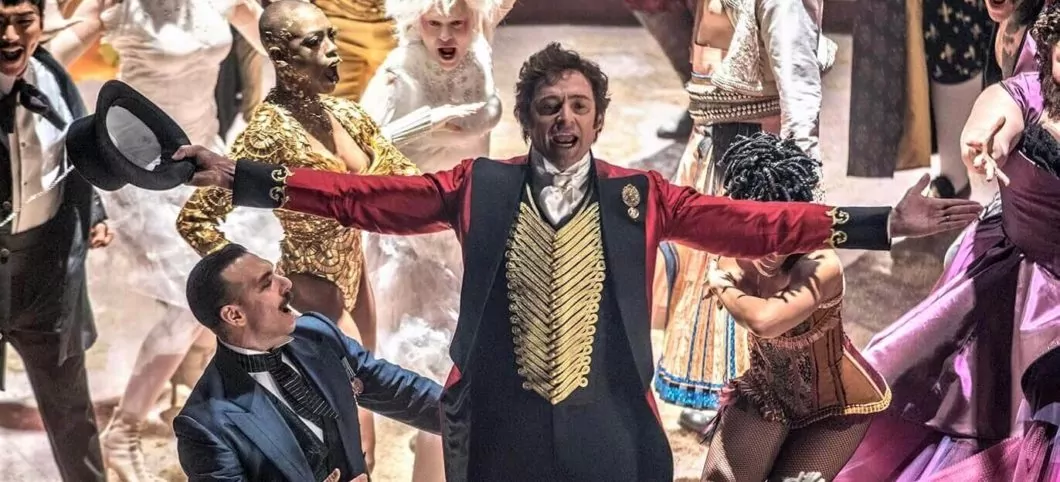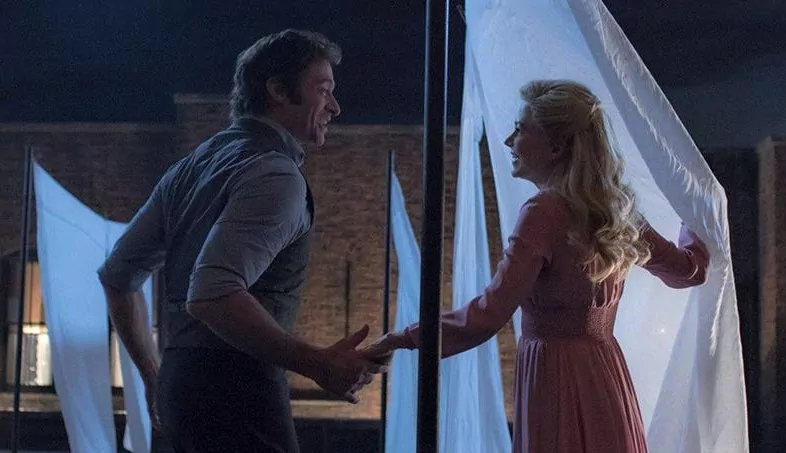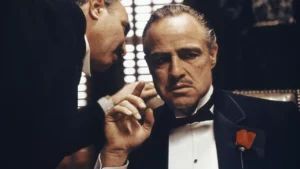
The Greatest Showman is a 2017 musical drama directed by Michael Gracey. It stars Hugh Jackman, Michelle Williams, Zac Efron and Zendaya in the lead roles. Any musical fan would at least be familiar with the songs of this movie, if not the entire film itself.
The Greatest Showman is a treat to watch. The cinematography, the powerful performances by the entire cast and the heart-touching storyline has won audiences across the globe. Hugh Jackman was charming as Barnum. Of course, it’s greatest and most selling factor is the music.
From upbeat tracks like ‘The Greatest Show’ to romantic ones like ‘Rewrite the Stars’ to melancholic ones like ‘Tightrope’, the songs nail every mood they’re intended for. The movie hadn’t even started, but the energy and presentation of the opening track itself made me sing along in agreement when Hugh Jackman sang ‘This is the greatest show.’
So by now, I’m sure I have effectively confused everyone. You must be wondering, is the title a misspelling? Or is this an elaborate prank? Perhaps a poor attempt at a clickbait?
Here’s the thing. When it first came out, The Greatest Showman was the most wonderful thing that ever happened to me. As a fan of musicals, this bright, beautiful, heartwarming story about family and self-acceptance had my heart. It was, and subjectively speaking, still is my favourite musical. Which is why, when I found out that it didn’t do very well with the critics, some research was due on my part.
And now, objectively speaking, let’s talk about where The Greatest Showman went wrong.
A Disservice to Jenny Lind- Unintentionally Sexist
The plot of The Greatest Showman, though wonderfully suited for a musical, is anything but historically accurate. The Greatest Showman claims to be based on the life of Phineas Taylor Barnum, the co-founder of the Barnum and Bailey Circus. The movie gets some basic facts right- at least on the surface.
He does marry Charity Hallett Barnum, he did have great love in his heart for showmanship and his circus did burn down. But apart from these details, almost everything the movie tells us about P.T Barnum is either dramatised, whitewashed or pure fiction with a bit of reality sprinkled on top.
Take for instance, the Jenny Lind storyline. In the movie, Jenny Lind is a charming, sophisticated Swedish singer. She meets P.T Barnum when he and his troupe are presented before Queen Victoria. Barnum offers to represent Jenny Lind and claims to want to introduce the magic of her voice to America.
Barnum’s intentions behind wanting to sign Lind for an American tour are simply that he wished to elevate his position in society and to improve his public profile. While most of this isn’t far from reality, there are some bothersome elements in the reality-to-fiction transition.
First of all, I can never understand the need to portray Jenny Lind as this perfect, polished social figure who fits right into highbrow society. While there’s nothing wrong with knowing your crowd and acting accordingly, it was an odd creative choice if you consider, at least according to the sources, that Jenny Lind was known to impress with her simplicity and lack of pretentious airs.
Again, a woman that likes to dress heavily is nothing wrong or in any way a negative image…if that woman truly was Jenny Lind, which she wasn’t. The choice to change Jenny Lind’s simple nature in real life to the rigid performative one on screen seems to have been made simply to paint her character as a homewrecker. And that is problematic on many levels.
For starters, to associate being a beautiful, confident and successful woman to being a flirtatious one is an idea that is sexist to its core. Not only is Jenny Lind’s demeanour in the movie unapologetically seductive towards a married man from the very start, she also makes a move on him and makes a rash, emotional decision when he rejects her.
Barnum being her manager makes this situation further problematic as it seems to be almost promoting the baseless stereotype that women either use romantic involvement for professional progression, or throw away professional success for a romance. Her lavish attire and behavior also seemed to be used as a device to draw a parallel between ‘outsider’ Lind and the ‘loyal wife’ Charity, who was dressed a lot simpler in the movie- again a poor creative choice.
Why can’t people understand that ,a lot of the time, women dress for themselves and for no one else. They’re definitely not looking to make a move on their managers, or anyone else for that matter. Jeez.
On a deeper level, it’s kinda sad that in an attempt to add a marital dispute in Barnum’s life in the movie, the makers completely butchered Lind’s character. In real life, Lind was known to be charitable and married to her work for quite a bit of time.
Her relationship with Barnum was merely professional, and even that was believed to be strained at times. She gained fame as a singer solely because of her voice and her talent- and using her as a plot device in the movie undermines her as a person, her life and her success.

Rewrite the Stars… and History?
The movie also strayed from reality with its introduction of the two fictional lovers-Anne and Philip, played by Zendaya and Zac Efron respectively. Again, my fangirl heart cries as these two were one of my favourite things about the movie. Not to say that the topic of discussion that came with their storyline was unnecessary- the matter of race and skin tone will always be relevant and will always be important.
However, to make these fictitious star-crossed lovers such an integral part of the plot doesn’t do well for a movie based on real life. Viewers who went in expecting to know P.T Barnum better ended up spending a lot of time with characters that didn’t exist. However, this addition is not nearly as disturbing as the Jenny Lind one. As I mention, the concern about Anne’s race is not a topic to be shrugged at. Her character acted as a representation for a lot of black women and people of colour who faced the discrimination that she faced, and who are still facing similar situations in present times. So, credit where it’s due. Additionally, both characters were written well and both actors gave a splendid and memorable performance.
The Greatest Showman, Not A Very Great Man
Moving on to the man himself, P.T Barnum. While the movie painted Jenny Lind to be a negative presence in the equation, they completely ignored and even changed some very troubling facts about Barnum. The Greatest Showman does not give a lot of emphasis to Barnum’s handling of animals for his circus and instead lays focus on the human performers, but the truth was that Barnum’s treatment of the animals in his circus was downright cruel.
His mishandling and poor treatment lead to the death of some animals as well, including giants like elephants and whales. Use of animals in a circus is an unethical practice in itself, and to be the cause of death of these animals is just so much worse. To completely gloss over that fact is a poor look.
Moreover, while General Tom Thumb was an adult dwarf in the movie who was blessed with employment in Barnum’s circus, the real deal was a child that Barnum hired for his circus. The actual General Tom Thumb was Barnum’s cousin, who Barnum hired when he was around four years old.
Why they turned child labour into an act of kindness in the movie, I’ll never know. Also, Barnum ‘bought’ an eighty-year-old black woman named Joice Heth and displayed her in his circus, claiming that she was actually hundred-and-sixty-years old. This showman isn’t looking too great right now.
These are just some of the many things that the movie ignored or changed.
Why A Musical?
The biggest issue here is perhaps that they chose to make a musical about P.T Barnum. A movie about a profit-driven and reportedly cruel man has no business being as cheery and feel-good as The Greatest Showman was. It isn’t that musicals cannot be dark, I mean Sweeney Todd did a pretty good job. But The Greatest Showman was always going for the family-friendly vibe, and that was neither the tone nor the genre befitting to tell the story of Barnum.
The Movie Culture Synopsis
In the end, I will stand by the fact that The Greatest Showman is a good musical if you separate it from facts. Sadly we can’t do that since the movie-makers made it a point to associate it to the actual story. Personally, I believe they could’ve made a musical inspired by the Barnum story instead of directly basing it on him.
Creating a fictional character by only adopting the positive aspects of the source material would have saved them the criticism, and they wouldn’t have to bother with factual accuracy (not that they did anyways). Then, the message of self-acceptance, chasing your dreams and the importance of family would have probably had a better impact.



